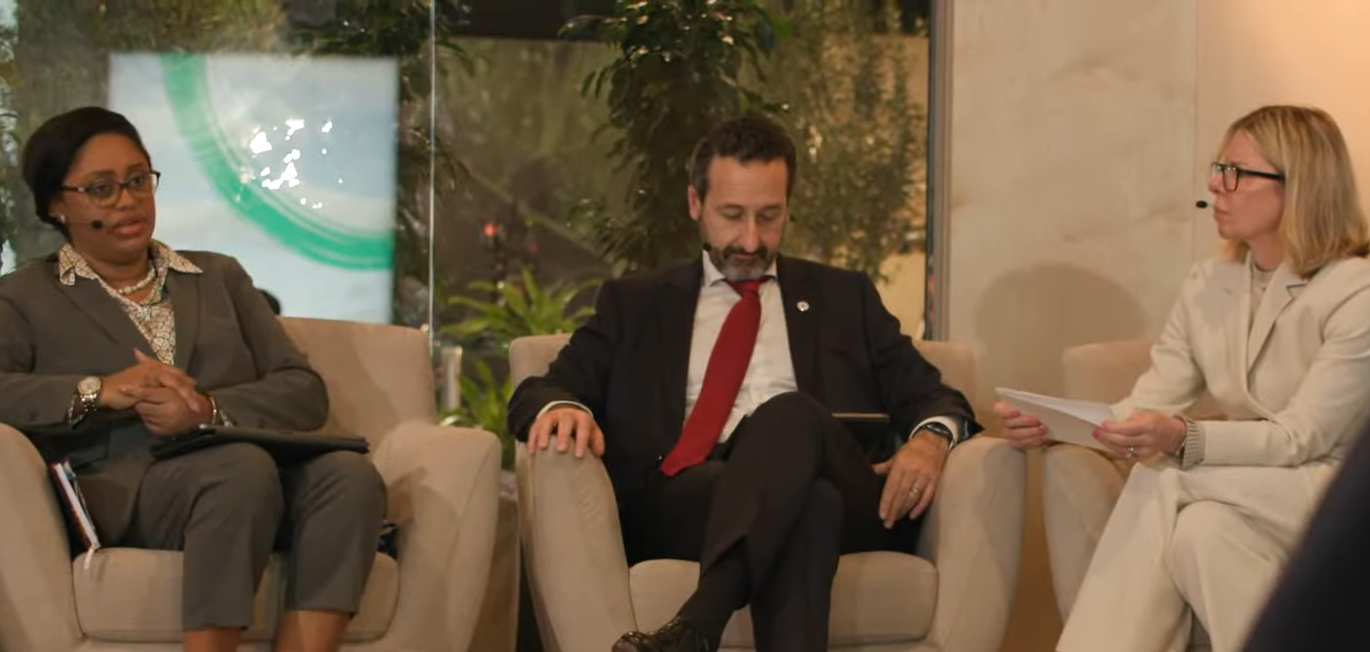[COP28 Event Recap] Adapting to Climate Change in Fragile and Conflict Settings: Opportunities for Scaling Action

The event “Adapting to Climate Change in Fragile and Conflict Settings: Opportunities for Scaling Action,” held at the World Bank Pavilion during COP28 in the United Arab Emirates on December 3, brought together key figures to address the urgent challenges faced by fragile and conflict-affected countries in the wake of climate change. The panel included Salah Ahmed Jama (Deputy Prime Minister, Somalia), Carla Louveira (Deputy Finance Minister, Mozambique), Robert Mardini (Director-General, International Committee of the Red Cross [ICRC]), and David Miliband (President, International Rescue Committee [IRC]). Anna Bjerde (Managing Director for Operations at the World Bank) opened the session by highlighting the disproportionate impact of climate change on fragile and conflict-affected countries nations and the potential to push 130 million people into poverty by 2030 without adequate intervention.
Carla Louveira detailed Mozambique's strategic plans, emphasizing humanitarian aid and infrastructure, to address the challenges the country faces. She stressed on the importance of partnerships, both internal and external, for effective response, outlining disaster risk financing initiatives like a disaster management fund and sovereign risk management strategy that are being established. Robert Mardini shared insights from Yemen and Cabo Delgado, emphasizing collaborative efforts with the World Bank and showcasing impactful results. He also spoke about the importance of community engagement and risk mapping in local initiatives, emphasizing partnerships with local organizations and international financial institutions.
Salah Ahmed Jama highlighted Somalia's progress post-debt relief and the need for tailored approaches to address climate challenges, calling for proactive, preventive resilience programming and access to consensual loans. He further emphasized the role of the state in creating an enabling environment for resilience in Somalia, calling for coordinated approaches involving states, international organizations, and development banks. David Miliband underscored the humanitarian-development nexus, emphasizing the dual crisis faced by the 16 most climate-vulnerable countries. He outlined action points, including risk mapping, micro-level innovation, collaboration with civil society, and aligning climate and humanitarian funds. He concluded highlighting the need for positive-sum partnerships and increasing risk appetite, advocating for evidence-based interventions.
Key takeaways:
- It is crucial to acknowledge the role of partnerships and community input, recognizing the unique contributions of different partners and emphasizing the importance of local community engagement.
- Robust plans and proactive crisis response, including funding considerations, must be in place before a disaster occurs. The World Bank is currently focusing on crisis response and the development of tools to enhance prompt assistance to clients during challenging situations.
- There is an urgent need to address the development challenge in fragile and conflict-affected settings. The World Bank’s new playbook aims to tackle this challenge, employing tools, instruments, and financing in collaboration with partners.
For updates, news, articles on Disaster Risk Finance, please join our LinkedIn Group and Community of Practice.